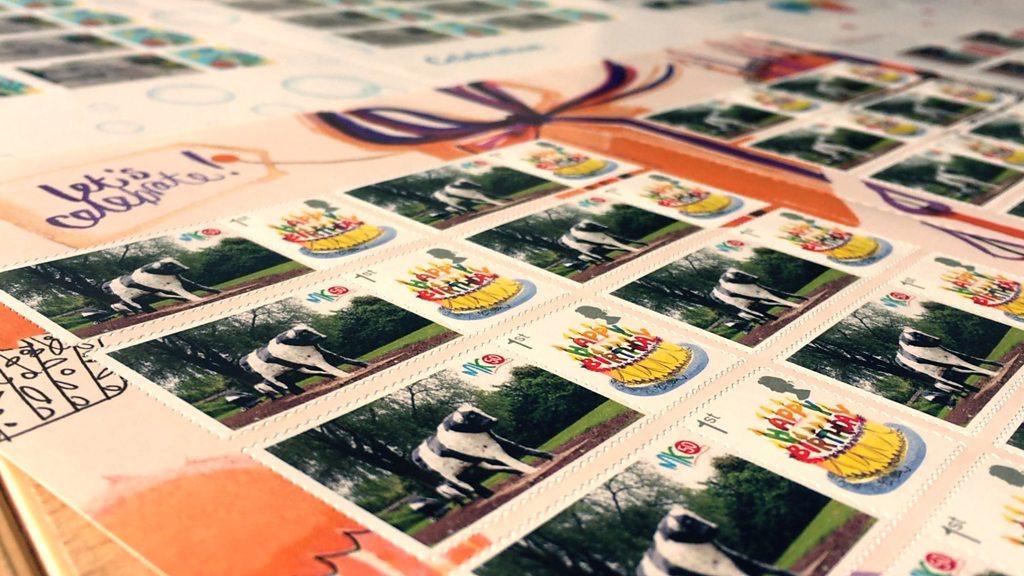Milton Keynes named a city to mark Queen's Platinum Jubilee
- Published
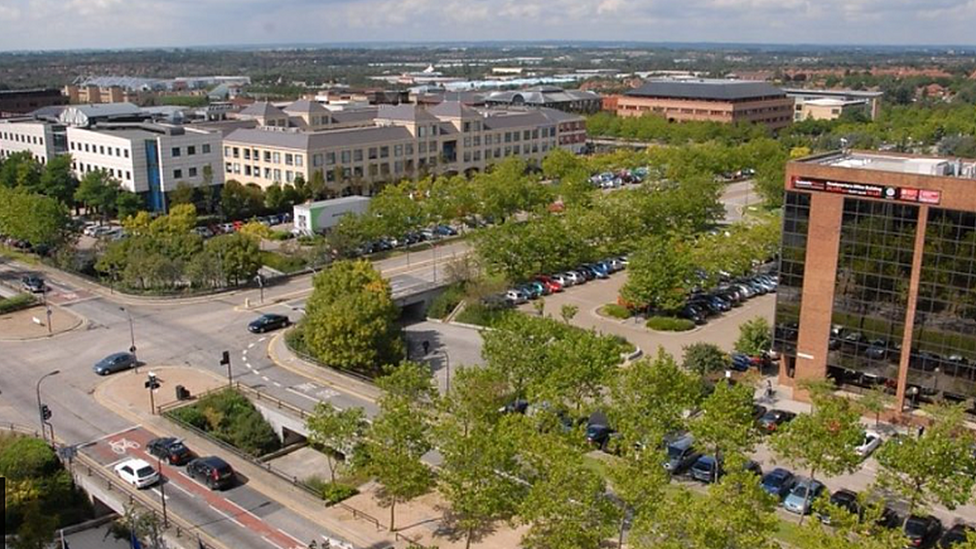
Milton Keynes applied for city status on three previous occasions
A council said it was "thrilled" that Milton Keynes has finally won city status at the fourth attempt.
The civic honour has been granted to eight places in the UK to mark the Queen's Platinum Jubilee.
Milton Keynes applied for city status, external in 2000, in 2002 for the Golden Jubilee - and in 2012 for the Diamond Jubilee.
"People have always said that Milton Keynes looks like a city, feels like a city and now we can say, it is a city," said council leader Peter Marland.
"We're thrilled with the news which validates how important Milton Keynes has become to the regional and national economies.
"City status will make people even prouder to call Milton Keynes their home and gives us the platform to make our great city even greater.
"It also reflects how passionate our communities are and I'm grateful to everyone who backed and contributed to the bid."
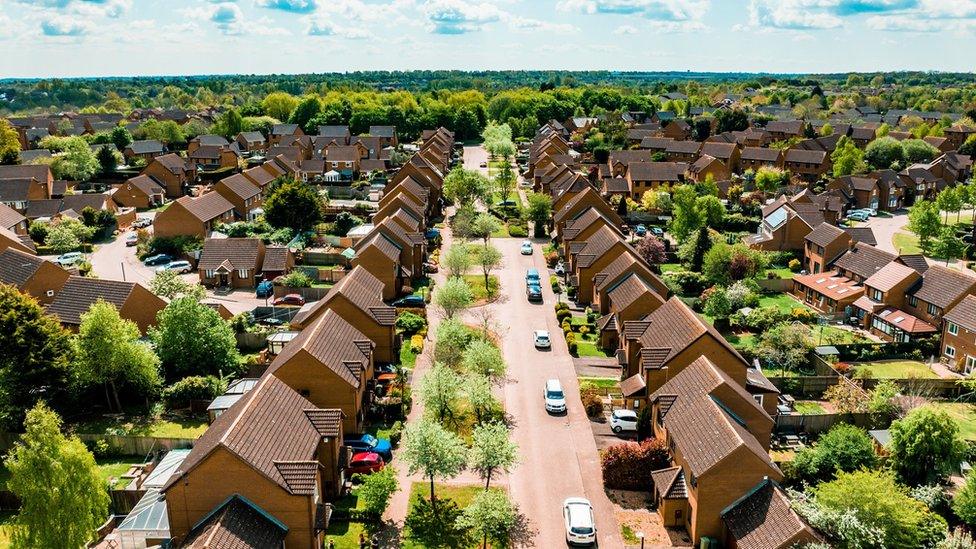
The new town of Milton Keynes was built around a small village of the same name
The Cabinet Office said the town was the "pinnacle of the national post-war planning movement, rebuilding the nation and accommodating its growing population".
The Platinum Jubilee Civic Honours Competition, external asked applicants to demonstrate how their unique communities and distinct local identity meant they deserved to be awarded city status.
They were also required to highlight their royal associations and cultural heritage.
Milton Keynes' fourth bid for city status, which used a delivery robot to send the documents, cited its 27 conservation areas, 50 scheduled monuments, 1,100 listed buildings and 270 pieces of public art.

'A grand vision' - the settlement that became a new town
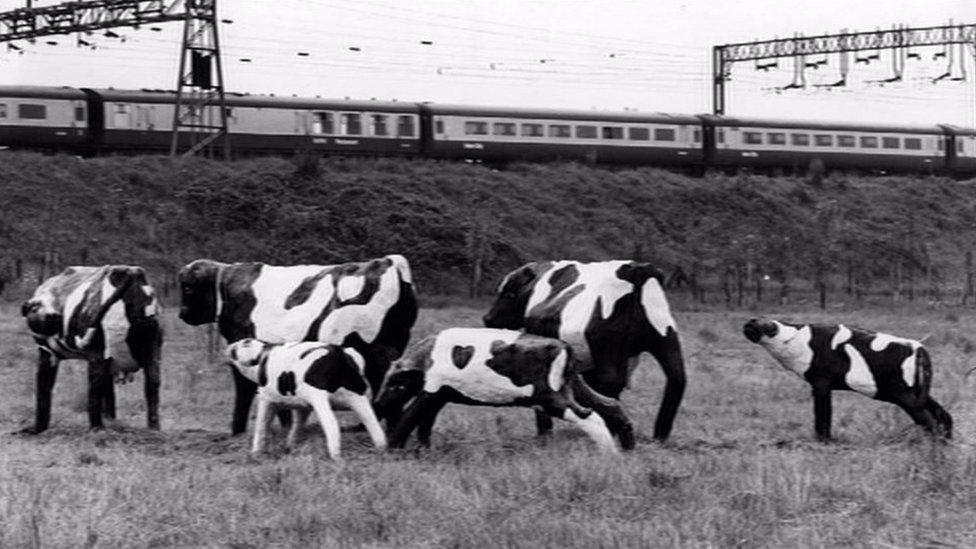
The concrete cows, created by the Canadian artist Liz Leyh in 1978, became a symbol of Milton Keynes
In January 1967, plans for a new town were approved - and soon a quiet Buckinghamshire village became the vast development of Milton Keynes.
Then housing minister Anthony Greenwood granted permission to transform an 8,850-hectare area of villages and farmland into a town for 250,000 people.
It was a grand vision - part of the third and final phase of the government's plans to relocate populations from London and other cities that suffered immense bomb damage during World War Two.
Some five decades on, Milton Keynes has a population of about 280,000, has become home to more than 10,000 businesses and is used as a model for new towns across the world.
It is home to the distance-learning institution, the Open University, which was established by Royal Charter in 1969 and is the largest university in the UK in terms of students enrolled.
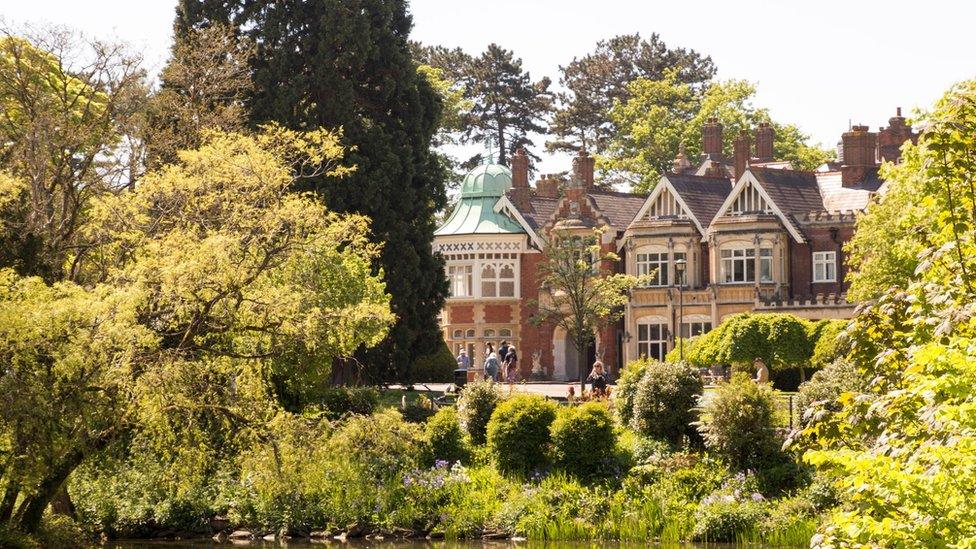
Bletchley Park, the hub of code-breaking in World War Two, is part of the Milton Keynes district
The Milton Keynes University Hospital NHS Foundation Trust established the nation's first independent medical school, and Milton Keynes was the first place to introduce kerbside recycling in the UK.
It is also home to the UK's first advanced waste treatment facility, which produces renewable energy for thousands of homes and businesses and has the nation's largest network of electric vehicle charge points.
Today, 140 languages are spoken in Milton Keynes' schools including those of every Commonwealth nation, and 30 religions are observed, the bid said.
The town also claims to have a higher number of volunteers per head of population than any other UK city, with 84,500 citizens regularly volunteering.

'Immense news'
The mayor of Milton Keynes, Conservative councillor Amanda Marlow, who was part of the bid team, said she found out on Wednesday, just before she was accepted as the new mayor, and made her acceptance speech knowing that this "immense news was around the corner".
"I sat at my desk looking at my iPad and very happy tears rolled down my face because this has been months of hard work and it's been a dream that I've had for such a long time," she said.
"To see the place that I love finally get the city status that it deserves just means everything."
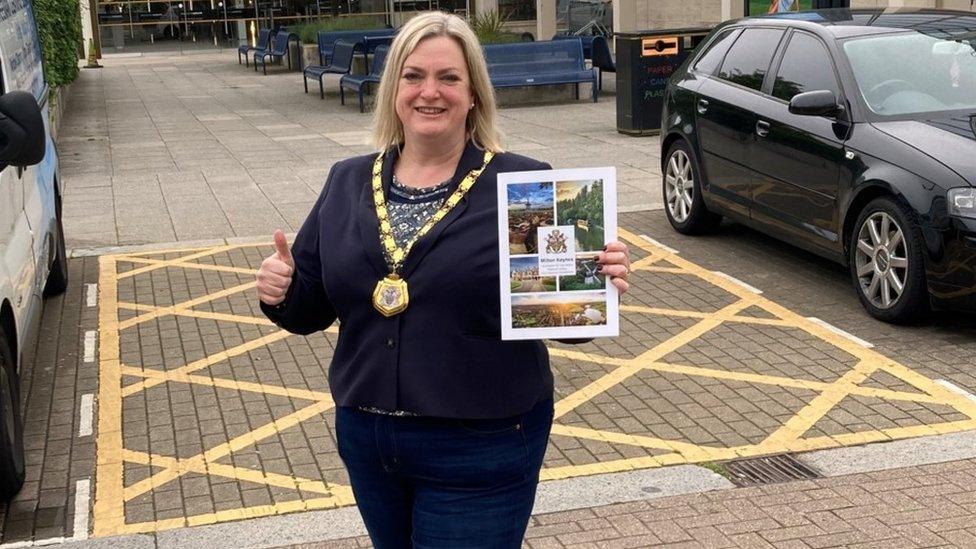
The mayor of Milton Keynes, councillor Amanda Marlow, said the city was a "positive and forward-thinking place"
After three previously unsuccessful bids, Ms Marlow thinks it was this bid showing "the heart of Milton Keynes" that finally got it over the line.
"I think it encapsulates everything - that [it] is such a positive and forward-thinking place," she said.
"We are now going [to go] further forwards in terms of innovation, inward investment - it's going to bring more business here.
"People are going to finally see what we've been saying for years - that Milton Keynes is a fantastic place to live, to work, to raise a family - it's everything."
'First goal'
The director of Milton Keynes Museum, Bill Griffiths MBE, said it was "great news" and something the new town's original planners always wanted.
"If you go back right to the first goal - one of them was 'the creation of an attractive city'," he said.
"That's what they wanted to produce and I think this is just an indication that we've gone further along that journey."
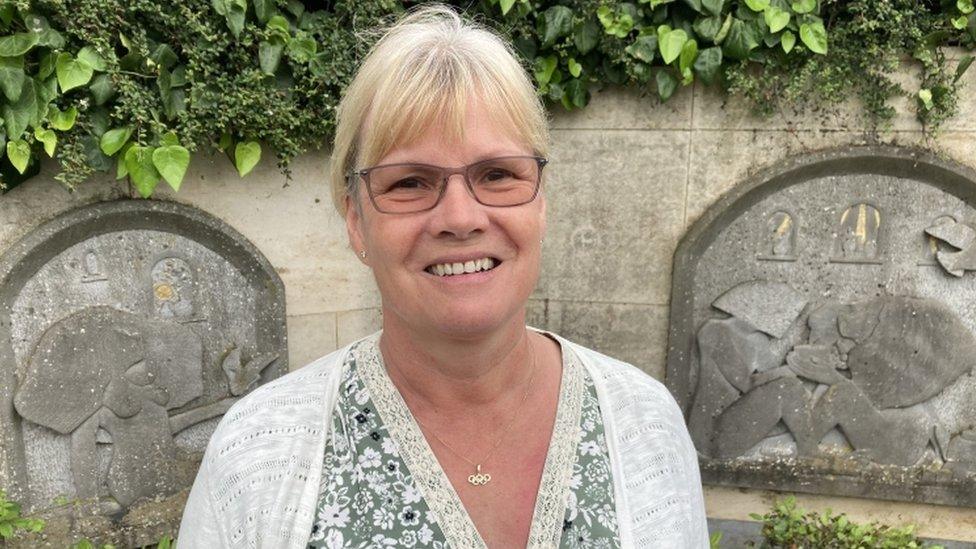
Melanie Beck MBE, chief executive of My Milton Keynes said there was "real civic pride" in the city
Melanie Beck MBE, chief executive of My Milton Keynes, which is the city's Business Improvement District organisation, said it was "such tremendous news".
"It was such an inclusive bid we sent in. The local population were involved, we in business were involved, every sector gave their views about being a city," she said.
"It puts us in a different league alongside big conurbations like Liverpool, Birmingham and Manchester, it gives us the opportunity to act like them, look forward for new investment, [and] really be aggressive about our stature in that playing field."
She added there was "real civic pride" in the city.
"We get quite upset if people diss our city and call it a concrete carbuncle... we are so much more than that," she said.
Not everyone had such glowing praise for Milton Keynes's elevation to city status.
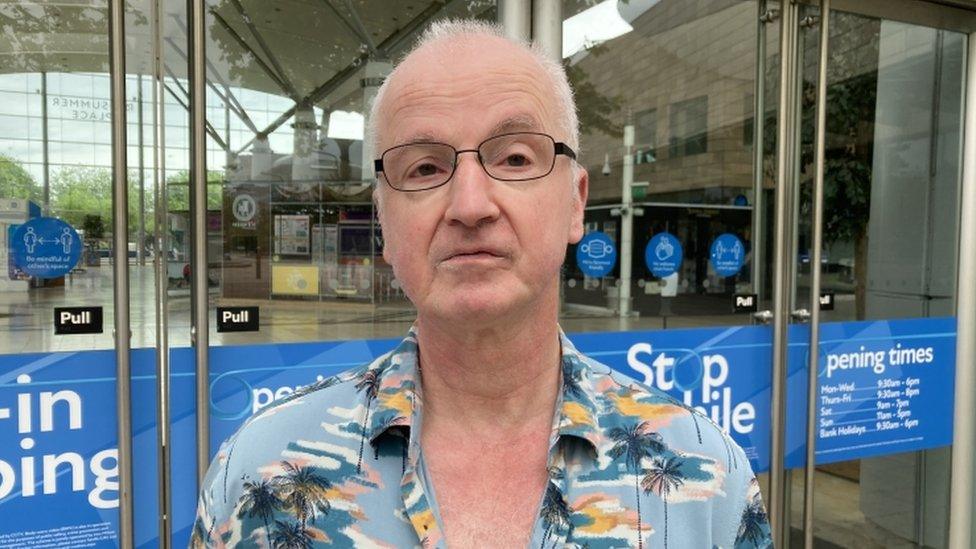
Resident Peter Navan, who moved from London about 10 years ago, said he did not think Milton Keynes felt like a city
Resident Peter Navan, who moved from London to the new town about 10 years ago, said he did not think it should be a city and that the decision was "a mistake".
"If you want to get around at night, everything shuts down," he said.
Mr Navan said the "honest truth" was that he wished he had stayed in London "because it's better".
'Bigger companies?'
However, Chloe Brooks, 27, who lives and works in Milton Keynes, said she was "really happy" about the news.
"I've lived here for a long time and to me it feels like a city," she said.
"It might bring more people to Milton Keynes, maybe it will bring bigger companies here?
"But Milton Keynes is a great place to live.
"The best thing for me is that you can get anywhere in a really short space of time, there's everything you need, you can go shopping, cinema, ice skating, there's loads to do here."
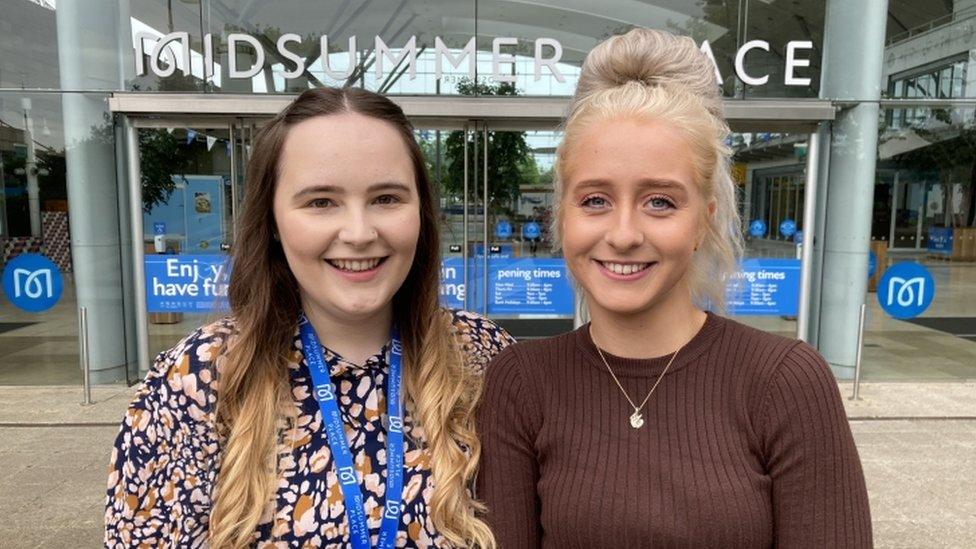
Chloe Brooks (left) and Dani Ward said they felt it had "always been a city"
Her friend, Dani Ward, 23, agreed that she "feels like it's always been a city".
"I think it's going to be really good for us - I think it's going to make everything more busy and that's a good thing," she said.
'I've seen the diversity'
Tony Oyakhire, moved to the city from Peterborough in 1997 and lives in Newport Pagnell.
On hearing the news, he said "it's about time, we've been going for this for a quite some time and this was our season for it to happen in the Queen's jubilee".
"I've seen the diversity, I've seen the development and forward-looking nature of the city; I'm very, very delighted."
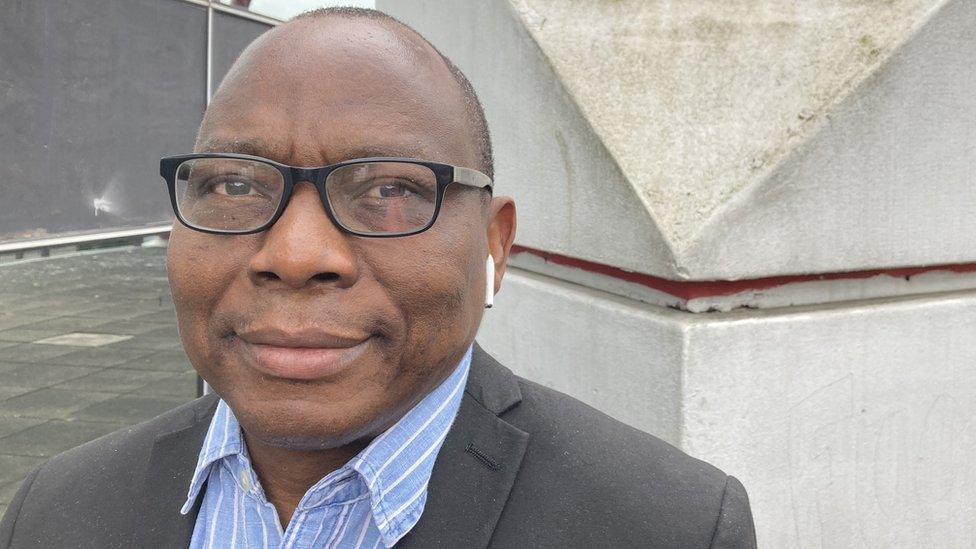
Tony Oyakhire said now that Milton Keynes was a city he would like to see "a local university that our children can go to"
In 2007, he co-founded SieveMK, an education charity that aims to get children "out of the streets into education and then into employment" he said.
He believed the new status "will make a difference - we want to bring investment into our city, we want to grow our city and we want to establish our own university [with a campus], which is in the pipeline".
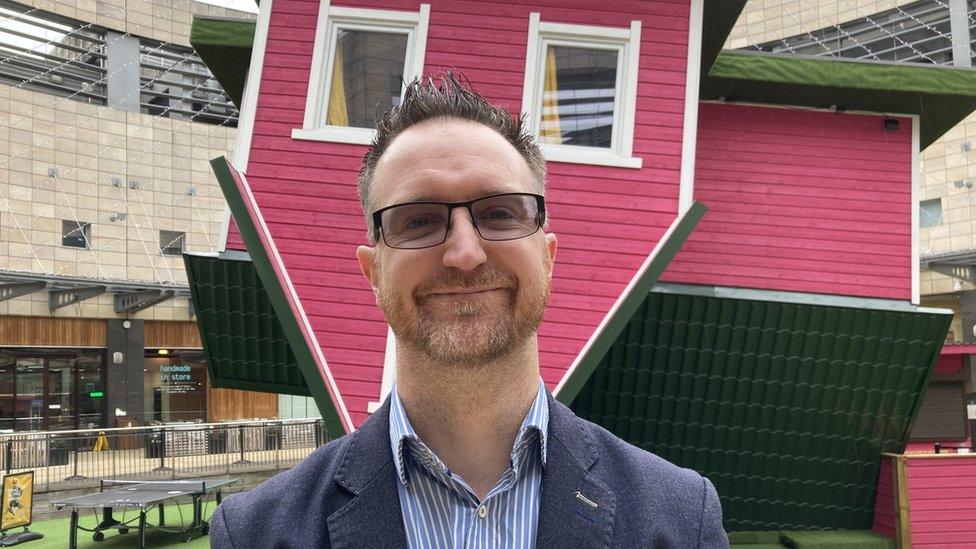
Scott Jones said the "growth of Milton Keynes has been incredible, it's just continued to grow every day"
"Finally!"
Those were the words of Scott Jones, who runs 123 Internet Group, which has been in the city for more than 10 years. He is also the vice-president of Northamptonshire and Milton Keynes Chamber of Commerce.
"This has been a long time coming and it's a real stamp of approval for Milton Keynes," he said.
"The community here is incredible, over 30 religions and over 100 languages spoken - it's such a great place.
He said it was "very unique, with the road links and the grid system. It's going to be really positive for tourism."
He highlighted the city as being the home of autonomous car testing and many big companies.
"The city was built for this reason it's a perfect set up for business, testing and technology and everything else."

Find BBC News: East of England on Facebook, external, Instagram, external and Twitter, external. If you have a story suggestion email eastofenglandnews@bbc.co.uk, external
- Published20 May 2022
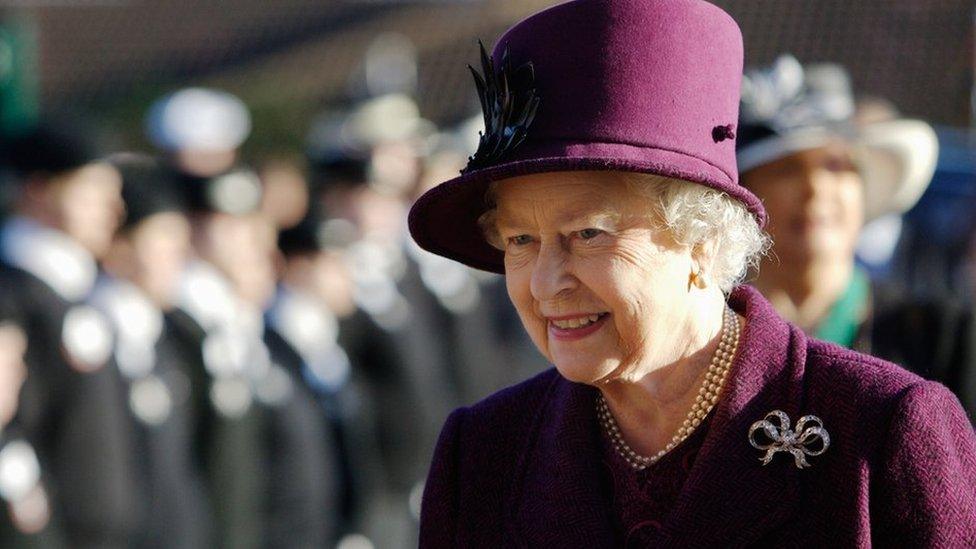
- Published14 July 2021
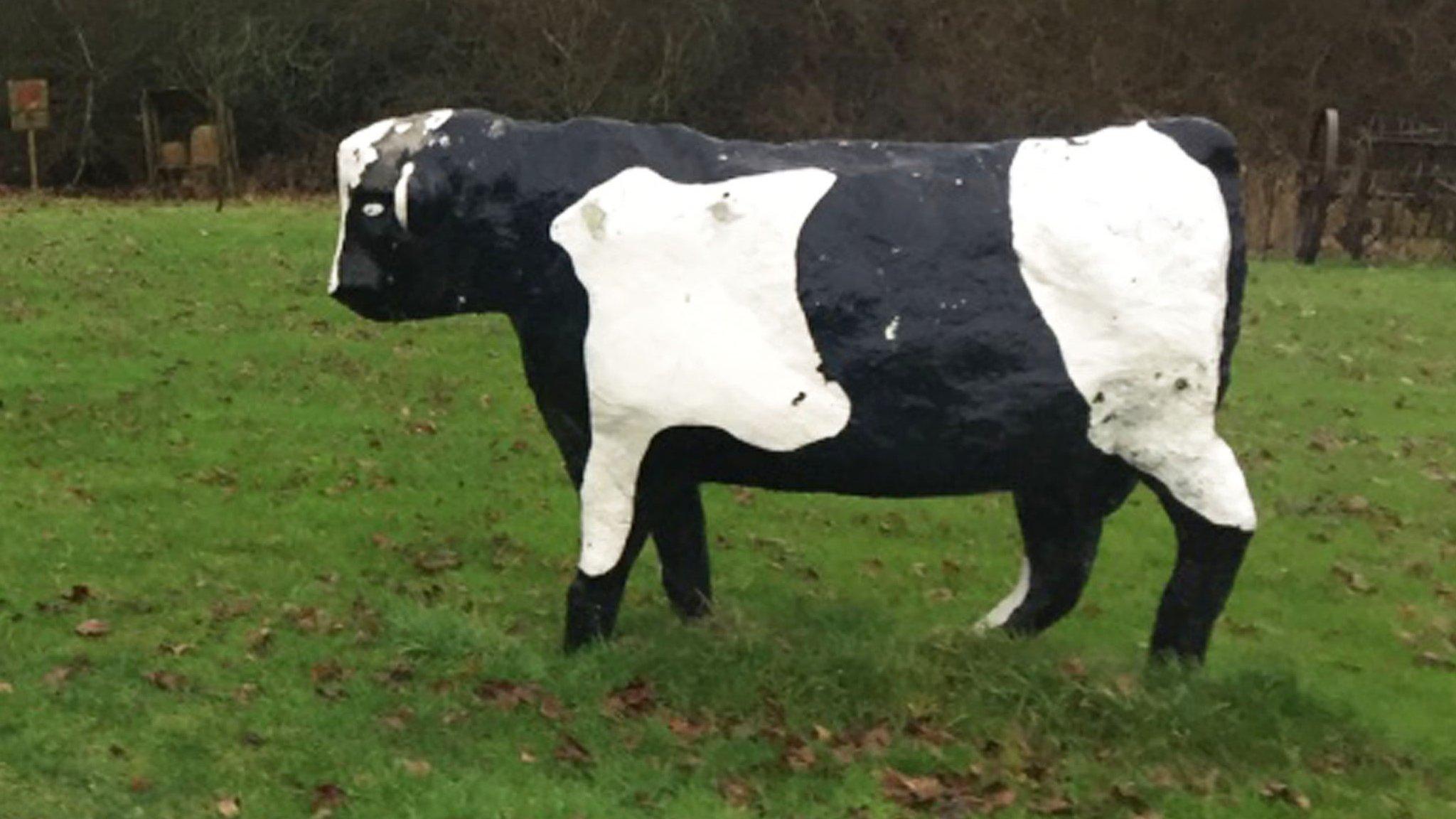
- Published1 January 2017
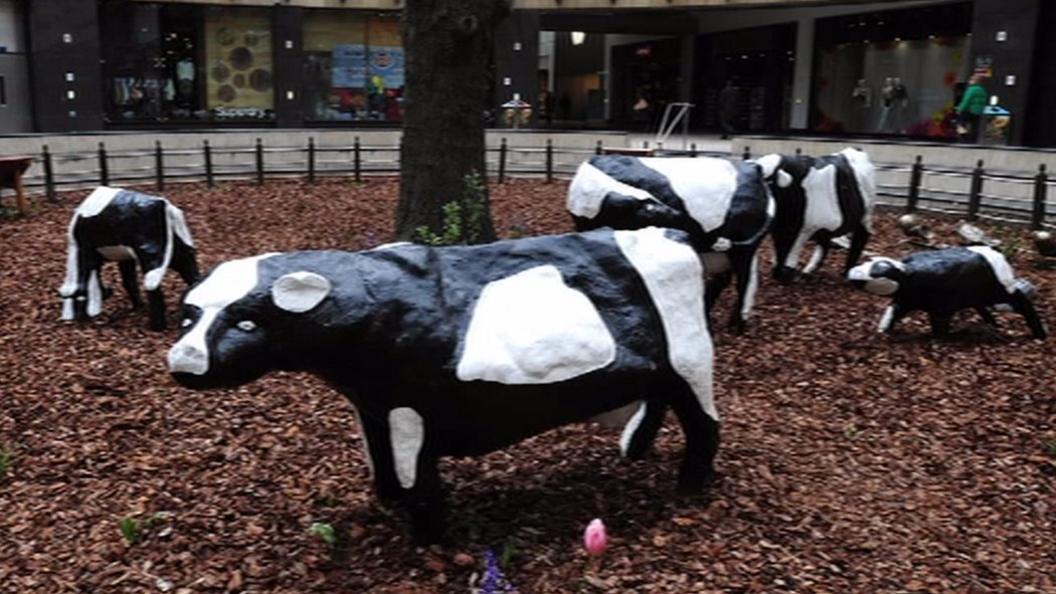
- Published26 September 2017
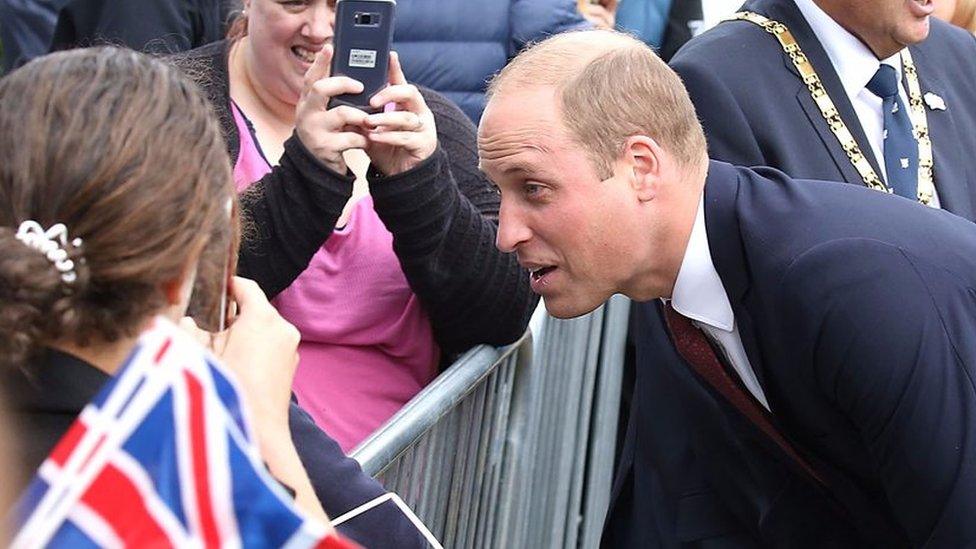
- Published2 August 2017
